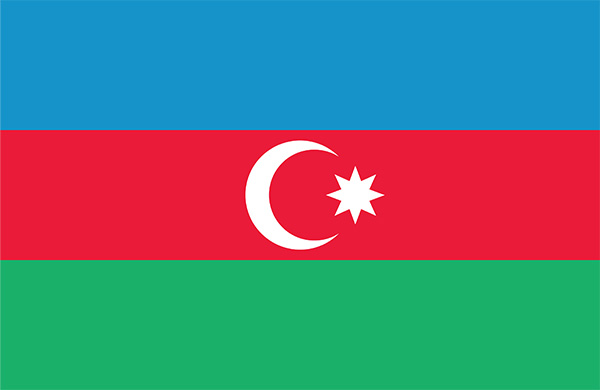Many observers have seen the recent conflicts between Azerbaijan and Armenia as a revival of the dark days of the Armenian Genocide of the early twentieth century, when the Ottoman government pursued the systematic extermination of 1.5 million Armenians, mostly Ottoman citizens within the Ottoman Empire and its successor state, the Republic of Turkey, as well as over 1,000,000 Greek Orthodox Christians and 300,000 Assyrian Christians. The similarity between the Armenian Genocide and recent events was also evidenced in Azerbaijan’s targeting of churches.
For more ChristianPersecution.com coverage of the persecution of Christians in Azerbaijan and the areas it controls, see here.
“‘Rid its borders of Christianity’: Azerbajian [sic] lands on list of worst Christian persecutors,” by Ian M. Giatti, Christian Post, November 3, 2023:
The predominantly Muslim nation of Azerbaijan has landed on a persecution advocacy group’s list of the worst countries for Christian persecution over its policies toward neighboring Armenia.
The United States-based International Christian Concern (ICC), which tracks the persecution of Christians worldwide, released its 2023 Persecutors of the Year report this week.
The publication lists Azerbaijan among the top 10 nations hostile toward the faith. The list includes Nigeria, North Korea, India, Iran, China, Pakistan, Eritrea, Algeria and Indonesia.
Sandwiched between Turkey and Iran, Azerbaijan has warred with Armenia for decades over the Nagorno-Karabakh region, which consists of as much as a 98% majority Christian population, most of whom identify as Armenian Apostolic, according to ICC.
The two nations have entered into conflict at least twice over the last century, but following a monthslong blockade earlier this year, Azerbaijani forces commandeered Nagorno-Karabakh, a self-known to Armenians as Artsakh, in September.
The region was previously controlled by ethnic Armenians as the unrecognized Republic of Artsakh, a de facto independent state internationally recognized as a part of Azerbaijan.
After a six-week war with Armenia in 2020, Azerbaijan regained control of territories surrounding Nagorno-Karabakh. An armistice brokered by Russia left the region connected to Armenia only by the Lachin Corridor. Nagorno-Karabakh had been under varying degrees of blockade since December 2022 and was completely cut off from Armenian supplies in mid-June before the September offensive.
“Azerbaijan’s end game is clear: to rid its borders of Christianity either by forcing the Armenian people and their faith out of Azerbaijan or destroying the people and historical sites,” the report states.
ICC highlights the language employed toward Armenians by Azerbaijan President Ilham Aliyev, who “uses derogatory rhetoric, such as barbarians, rats, and vandals, to describe and dehumanize the Armenian people.”
In 2012, Aliyev tweeted, “Our main enemy is the Armenian lobby.”
“Armenia as a country is of no value,” he tweeted “It is actually a colony, an outpost run from abroad, a territory artificially created on ancient Azerbaijani lands.”
Despite the ancient heritage of Armenia as the world’s first Christian nation, the report points to what it described as the international community’s “ill-informed understanding of the ancient cultural heritage of Armenia.”
Videos that surfaced of the 2020 conflict between the two nations showed Azerbaijani forces “intentionally destroying” Christian cultural landmarks like the centuries-old khachkars, or cross-stones, and churches such as the Ghazanchetsots Cathedral, one of the largest Armenian churches in the world.
“For most people living in the region, to be Armenian is to be Christian,” the report stated. “Therefore, persecution against Armenians and Armenian residents of NK is persecution against the body of Christ.”…







